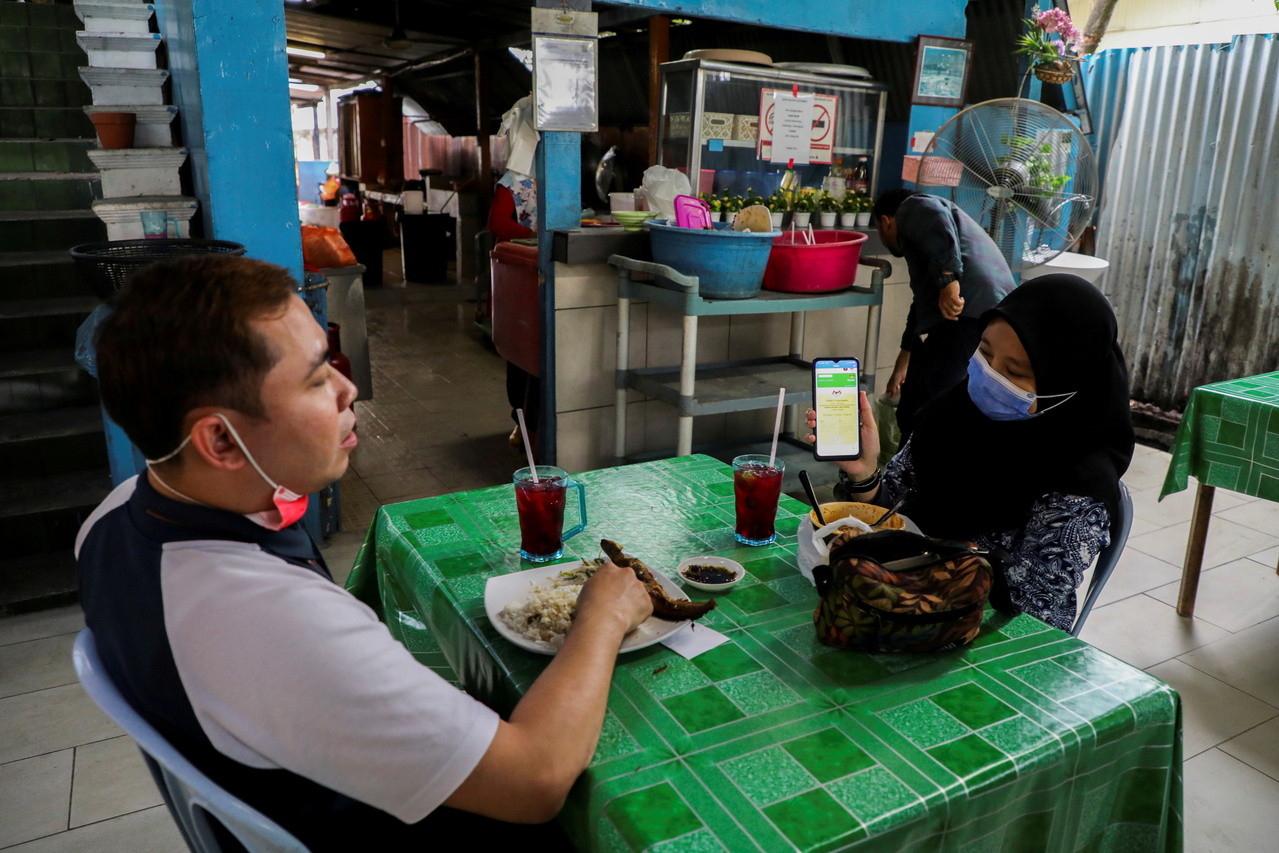Malaysian police warn against fake Covid-19 vaccine certificates as economy reopens
Sign up now: Get ST's newsletters delivered to your inbox

A diner showing her digital vaccination certificate at a restaurant in Kuala Lumpur on Aug 20, 2021.
PHOTO: REUTERS
Follow topic:
KUALA LUMPUR - Police in Malaysia have issued a warning about fake Covid-19 vaccine certificates as the economy gradually opens up to those vaccinated.
More and more businesses, such as restaurants, hair salons and retailers, are now demanding proof of vaccination before entry. Those who are fully vaccinated can also vacation in Langkawi and pray at houses of worship.
"This issue of fake vaccine certificates first came up when certain countries started raising the prospect of needing a vaccine passport for travel, and became amplified when our own government brought up the issue of recognising vaccine certificates in this country for various purposes," Malaysian Medical Association (MMA) president Koh Kar Chai told The Straits Times.
"MMA was alerted to it by general practitioners who were approached by individuals who were willing to pay for a fake Covid-19 vaccination certificate," said Dr Koh.
Some people have also apparently turned up at vaccination centres hoping to get their hands on a certificate without being jabbed, a medical officer at a centre in Kuala Lumpur told ST.
"We do see some anti-vaxxers who come here, but they don't want to get the vaccine. They just want the certificate. But we tell them that they have to be vaccinated in order to get the certificate," said the medical officer.
Even more alarming, fake vaccination certificates are now being peddled online.
A screenshot of a conversation in a Telegram group that offered such certificates was shared on social media last week. Three types of "vaccine certificates" were available, according to the posting, priced from RM200 to RM1,500 (from S$65 to S$485).
The seller claimed that a digital certificate sold at RM1,500 would have the name and identity card number of the buyer on it and could be used at all premises, while a RM400 version would bear the name and identity card number of some other person and was not foolproof.
A non-digital certificate costing RM200 was also available.
Last month, a viral post on Facebook alleged that digital certificates were being sold for RM15 each.
People now need to show proof of Covid-19 vaccination to enter many premises, including mosques, with the progressive reopening of the economy.
The tourism sector in Langkawi has also come back to life under a pilot travel bubble programme launched on Sept 16, in which adult visitors must be fully vaccinated to holiday on the island. The programme is limited to domestic visitors for now.
There are plans to open up more travel bubbles to other tourist spots around the country, such as Genting Highlands.
As at Friday (Sept 24), 59.2 per cent of the general population and 82.5 per cent of adults in Malaysia were fully vaccinated. Almost 20 per cent of adults, which include anyone above 18, have yet to or refuse to be vaccinated.
Police have warned that any activity connected to forging digital vaccination certificates is a serious offence punishable with a maximum seven-year jail term and RM100,000 fine.
At least ten individuals have been charged in court with falsifying vaccination certificates, the Home Ministry said on Sept 15.
Malaysia reported 13,899 new daily Covid-19 cases on Saturday. The total number of infections in the country now stands at 2,185,131, with 24,931 deaths.

